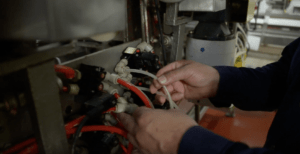If you try Googling the phrase “good resume,” you’ll get something like 67,400,000 results. That’s a mountain of resume advice. How, then, should you approach writing a good resume? To help answer that question, we asked HR professionals in the DuPage County area for their opinions on the biggest resume do’s and don’ts. Read on to see what they had to say.
1. What Makes a Resume Most Effective or Successful?
-
- Concise, not too long and to-the-point — Your resume shouldn’t tell the details of your life story, or of your entire work history. Instead it should focus on your fit for the job for which you are applying. When prioritizing what information to include in your resume and what to cut, keep in mind that recent experience counts more than older experience.
-
- Organized, clean and easy to read — HR staff are often the first to see your resume, and they prefer resumes that are easy to read. Use bullet points and outline form to make a resume that visually highlights your accomplishments, and makes it easy for the HR person to visually scan and make sense of it. Be sure there is sufficient space between paragraphs and bullet points, so that your resume doesn’t look like a wall of text.
-
- Focused on skills, achievements and results — In general, both the HR screener and hiring manager want to see accomplishments at your previous jobs, not just a “laundry list” of tasks you performed. When listing your accomplishments and achievements, be sure to focus on those that most pertain to the job for which you are applying.
-
- Clearly written, with supporting details — Make sure that statements about your qualifications are clear and to the point, and supported by relevant facts or statistics.
-
- Easy to understand — Chances are, the first person viewing the resume is not an expert on the position. It most likely won’t be the hiring manager; rather, it will be an HR representative in most cases. Position-specific terms and acronyms might not mean enough to everyone who sees your resume; keep those to a minimum and be sure to define them the first time you use them in the document.
2. What are the Biggest and/or Most Common Resume Mistakes That You See?
-
- Spelling and grammatical errors — Most of the HR professionals we surveyed gave this as the top mistake they see on resumes. Spelling and grammar errors give the impression that you are careless or lazy; a poor communicator or just sloppy. They increase the chances of your meaning or attitude being misunderstood (or worse, understood for what they actually are); they reflect poorly on your level of professionalism and your commitment to communicating well with the reader.
-
- Resumes in file formats that are difficult (or impossible) to open — If the HR person can’t open it on the first try, you are done. Get with the program! Send your resume out in a file format that just about anyone can open. This includes an email with a plain text attachment. Or, email the resume as a .doc file. As long as your resume is largely text-based and formatted in common fonts, it will be easy to read just as you wrote it.
-
- Professional Summary is too general — If you use a professional summary, it will sit in prominence at the top of your resume. It should emphasize experience that fits the job for which you are applying, or show specifically the type of job, challenges and culture you are seeking.
-
- Too long of a resume, with outdated information that doesn't apply to the job you want — It’s great that you were one of the first ever to use punch cards or, later, a PC, but that doesn’t matter for the job you want today. Going back too far in your resume will obviously “date” you and, as noted above, recent experience is more important. Also, going back that far makes the resume too long (or shall we say, “boring?”) Show you have current skills and emphasize the ones that will make you valuable in this particular job. You don’t have to make it a one-pager, but do your best not to make it too long, i.e., a resume that gives too much information unrelated to the job for which you are applying.
-
- Cutting and pasting the same job duties for multiple jobs — Be specific. What did you do in each particular position that made it different from the previous ones? How did you make yourself more valuable and grow your skills over time? What new things did you have to learn and how did you use them? Show that you are always in “growth” mode and look forward to taking on new challenges. Using the same description for each entry makes you look stagnant, lazy and unmotivated, at the very least.
-
- Not enough relevant information — If you do not give much information in your resume that shows you are a strong potential fit for the job, your resume will be quickly tossed out. The competition is heavy and the HR person is anxious to whittle down the pile. Do yourself a favor: pack your resume with the “meat” needed to obviously prove your strength as a candidate.
Remember that today’s HR person is not reading much between the lines. Starting with the “eyes” of the ATS (Applicant Tracking System,) your resume must show you to be an obvious potential fit. Don’t use the same resume you sent for the last job or the one before that. Use one that proves your potential for THIS job.
Also, use keywords that quickly show your potential fit. Make pertinent information stand out with bullet points and/or headings/sub-headings. Create a title for yourself that applies to the particular job you want, and put it at the top of your resume under your name and contact information. Make all the information in this version of your resume work for you, even the fact that, for example, you live only a few minutes’ commute from this employer’s location.
Putting the Pieces Together
Remember that your resume could be in competition with scores, or even hundreds of other resumes. It needs to stand out.
But “standing out” doesn’t mean resorting to gimmicks or tricks. It means creating a good resume. This means writing a resume that clearly and concisely demonstrates why are a strong candidate for the job.
Take the above advice, directly from HR professionals, and you will greatly improve your chances of making it through the frenzied part of the resume competition and into the “yes” pile!






